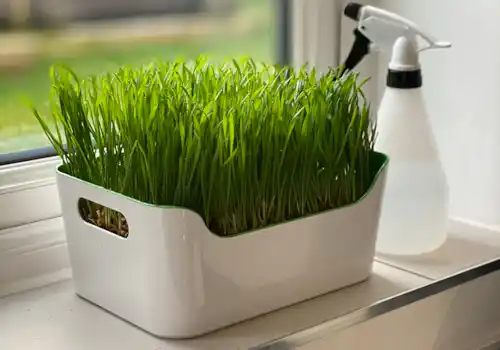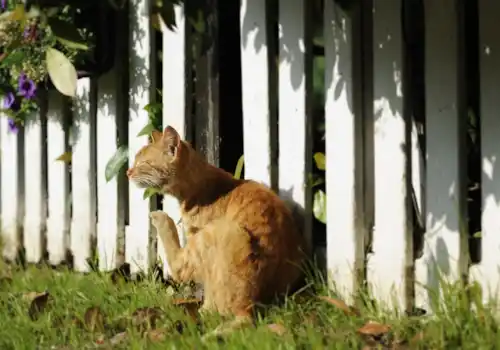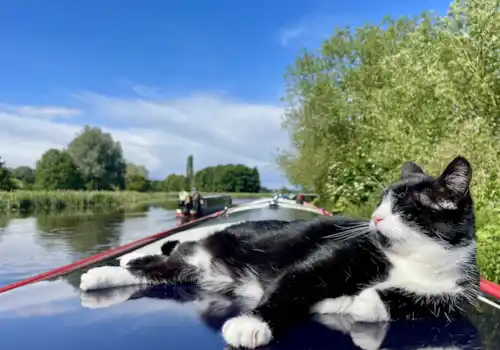Ever wondered why your cat doesn't purr? If your cat doesn't purr, it doesn't mean he's unhappy. Find out more about why your cat doesn't purr.
Most cats do purr, although the readiness with which they offer this behaviour varies, as does the volume and intensity of the sound. However, some cats never purr at all. If your cat doesn't purr it doesn't mean his life is lacking in any way, that he is unhappy, or has endured any emotional trauma.
We still don't understand exactly how the cat's purr is produced - it is thought that it probably requires some complicated mechanism involving the vocal cords and the respiratory and cardiovascular systems. It's possible for perfectly healthy cats to have a deficit in some area that simply means they don't produce the sound, but we would not necessarily see anything untoward.
It is rather disappointing for owners of such pets, as we get so much pleasure from hearing our companion felines purring contentedly when they are relaxed and happy in our company. Apart from keeping these 'silent few' happy, there really isn't anything that can be done to encourage purring. Sadly, it either happens or it doesn't.
Facts about cat purrs:
- Adult cats purr mainly when being fed or stroked.
- According to Leslie Lyons of the UC Davis Veterinary School of Medicine, purring is probably the result of an evolutionary advantage for cats. Another study from the University of Sussex suggests that cats may have developed a 'soliciting purr' to obtain food and attention from humans.
- Newborn kittens are blind and deaf so follow the vibrations of their mother's purr as a directional guide to find her milk.
- Other species in the cat family that also purr include the bobcat, cheetah, lynx and puma. There is some dispute over whether the big cats such as the tiger, lion and leopard also purr.
- The purr is produced when the cat is both inhaling and exhaling.
- Domestic cats purr at a frequency of 25 to 150 vibrations per second.
- There have been many studies about the healing power of the purr - it has been proven to lower blood pressure and alleviate depression in humans.
- Scientists have found that purring is 'pitched' at a frequency that serves as pain relief as well as stimulating growth in bones and muscles.
- Although we normally assume a cat purrs because they are joyful, they also purr when they are stressed or in pain. It is thought the purr may release endorphins, which help soothe or calm the cat.
- It is thought that the sound of a purr is produced by blood flow through a large vein in the cat's chest cavity, the noise of which is amplified by air in the windpipe passing through two membranous folds (known as false vocal cords) behind the actual vocal cords.
- The average cat purrs at a volume of 25 decibels. A cat called Smokey claimed the Guinness World Record for 'Loudest purr by a domestic cat' in 2011 having been recorded at 67.7 decibels. But, on April 2, 2015 Smokey's record was lost, after Merlin achieved a record-breaking purr of 67.8 decibels!
Smokey was feature in the June 2012 issue of Your Cat Magazine - watch the video below.
Advice given by behaviourist Francesca Riccomini.







